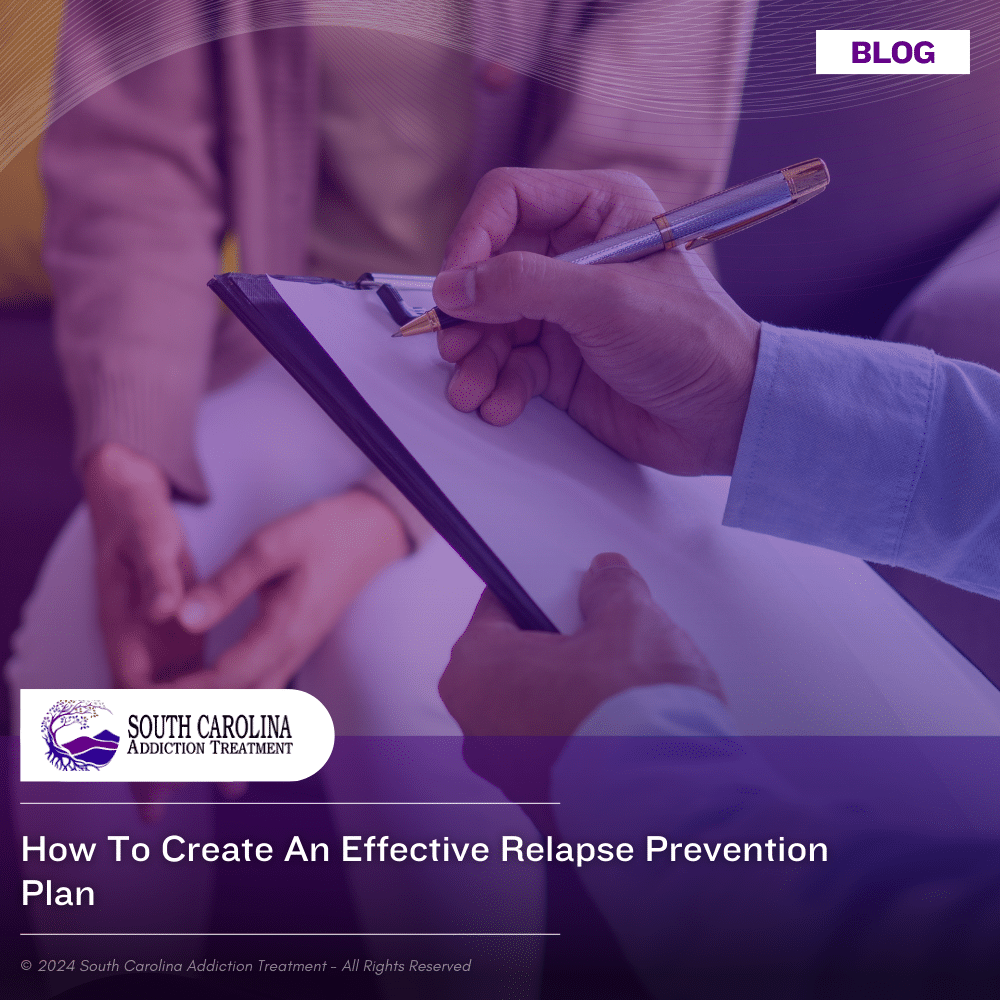How to Create an Effective Relapse Prevention Plan

Medically Verified: 2/1/24
Medical Reviewer
Chief Editor

All of the information on this page has been reviewed and verified by a certified addiction professional.
Addiction is a chronic and progressive disease that must be treated by a drug and alcohol treatment center. While attending inpatient treatment will provide you with the support and tools you need to get sober, you must continue practicing your recovery maintenance techniques after you leave the facility.
When you have a substance use disorder certain circumstances, situations, and events can cause you to begin fantasizing about abusing substances. This is known as experiencing a trigger. If you are not keeping up with your recovery, these triggers could cause you to relapse.
Relapse is very common among people in recovery, so addiction recovery experts always recommend that individuals create and stick to a relapse prevention plan. Understanding how to create an effective relapse prevention plan can ensure your sobriety and keep you on the right track.
What to Include in Your Relapse Prevention Plan
You will collaborate with your therapist before you complete an addiction treatment program to create a plan for relapse prevention. Relapse prevention plans include tools and techniques that help you manage triggers healthily, preventing you from experiencing a relapse.
Your relapse prevention strategy will include:
Recovery Goals
One of the first things you should do is think about your goals for recovery. Outlining your goals will remind you of why you got sober in the first place and give you something to look forward to. These goals could include a career, finishing school, getting healthy, making amends, improving your relationships, or prioritizing your self-care.
You must create long-term goals and easily attainable short-term goals. Doing this will keep you from becoming defeated when your long-term goals are taking too long to achieve. Your short-term goals could be as simple as continuing to attend a certain amount of recovery meetings each week or keeping up with a nightly gratitude list.
Triggers
Effective relapse prevention plans always include a list of your triggers. Triggers are people, places, things, or situations that cause you to crave drugs and alcohol. For example, walking by a liquor store or smelling alcohol on someone’s breath could be one of your triggers. Triggers are unique to everyone.
Having a list of triggers that are personal to you can allow you to stay one step ahead of your addiction. Once you are aware of your triggers, you can begin to avoid them and learn how to work through them with healthy coping mechanisms.
Recovery Maintenance Techniques
Having a strategy to prevent relapse will put you in an offensive mindset. This means rather than playing defense, you are playing offense by preventing yourself from relapsing. The way to do this is to include a schedule of recovery maintenance techniques into your daily routine.
Examples of recovery maintenance techniques include:
- Continuing to attend therapy
- Taking any psychiatric medication you may need
- Participating in addiction support groups consistently
- Engaging with your recovery community
- Keeping up with self-care (exercise, healthy eating, sleeping well)
- Using mindfulness techniques and meditation to help with emotional regulation
If you stop utilizing your recovery maintenance techniques, your recovery will begin to suffer. Eventually, your emotions and cravings will become more difficult to deal with, putting you at an increased risk of relapse. It is essential to keep doing the things that helped you recover in the first place.
Warning Signs of Relapse
Relapse is not a single isolated incident, instead, it occurs in stages. The three stages of relapse are emotional, mental, and physical. Most people are familiar with the physical stage of relapse, where you engage in drug or alcohol use.
The first stage of relapse is emotional. This occurs when you stop caring for your emotional needs. For example, an emotional relapse could include bottling up your emotions, isolating yourself from others, or not healthily managing your emotions.
The next stage is a mental relapse. This is when you begin fantasizing about using drugs or alcohol to cope with your uncomfortable emotions. If your mental relapse is not properly addressed, it will lead to a physical relapse.
Being aware of the signs of relapse and the phases of relapse can allow you to address the issues you are facing before they turn into full-blown relapse.
Coping Mechanisms
Lastly, your relapse prevention plan should always include healthy coping mechanisms that work for you. This could include breathing techniques to soothe anxiety, meditation to focus your thoughts, or exercise to calm feelings of anger or irritability. You must ensure that you do not fall back into a habit of using coping mechanisms that are unhealthy, such as spending money you do not have, overeating, or using substances to numb emotions.
Find Help Today
If you or a loved one suffer from addiction and have a hard time staying sober, professional drug and alcohol rehab can help. One of the biggest obstacles to addiction recovery is understanding how to deal with your emotions healthily, but recovery centers like South Carolina Addiction Treatment can provide you with the support and tools you need to maintain long-term recovery.
To learn more about our drug and alcohol rehab program, contact South Carolina Addiction Treatment today.

